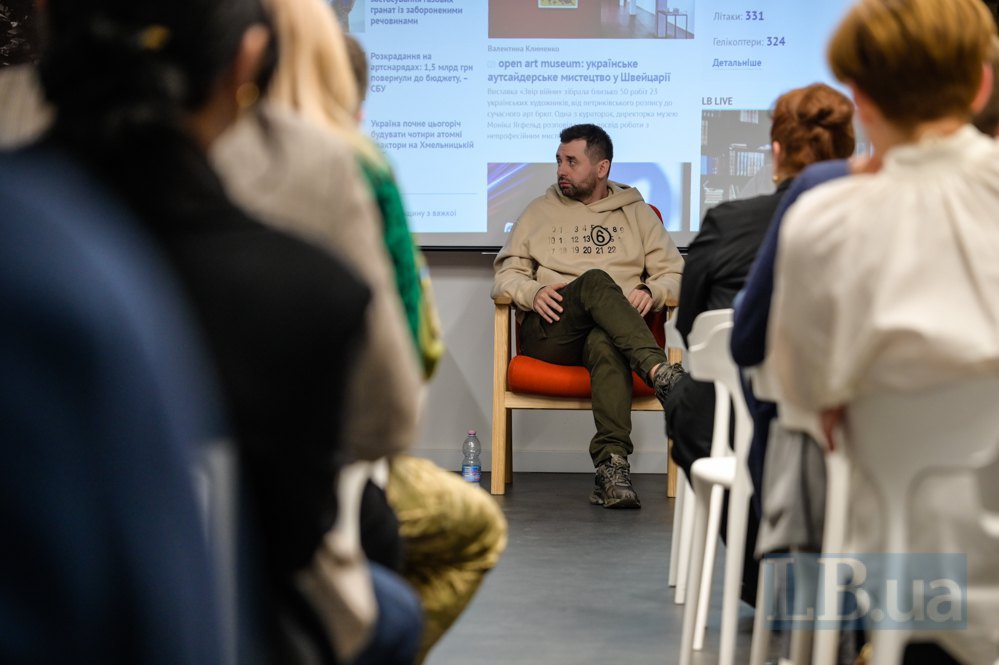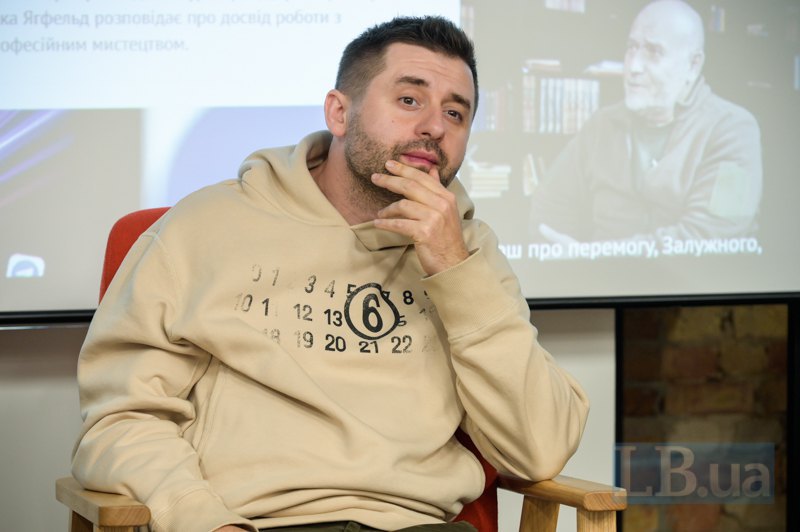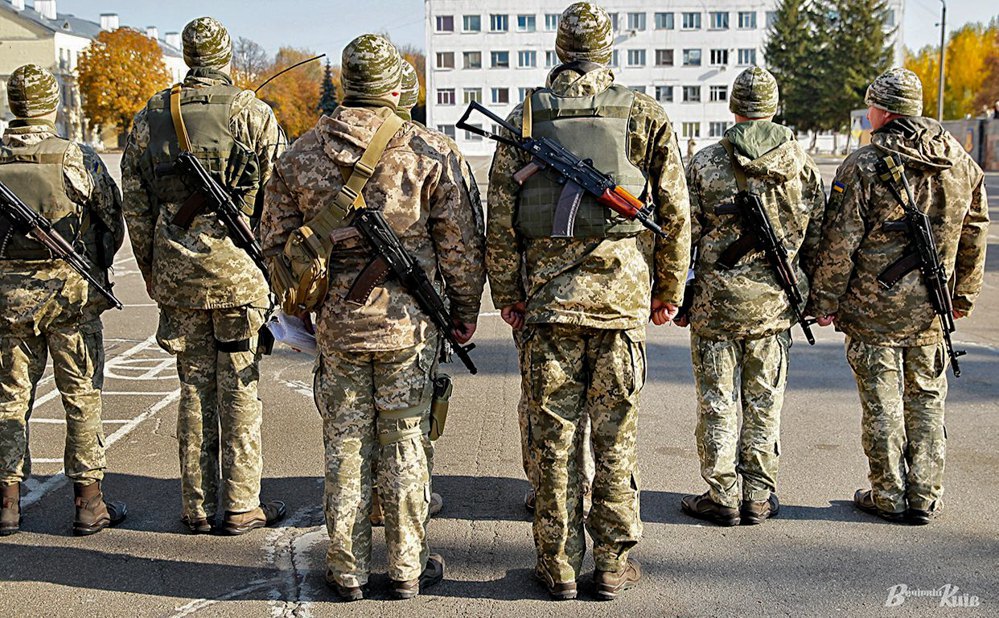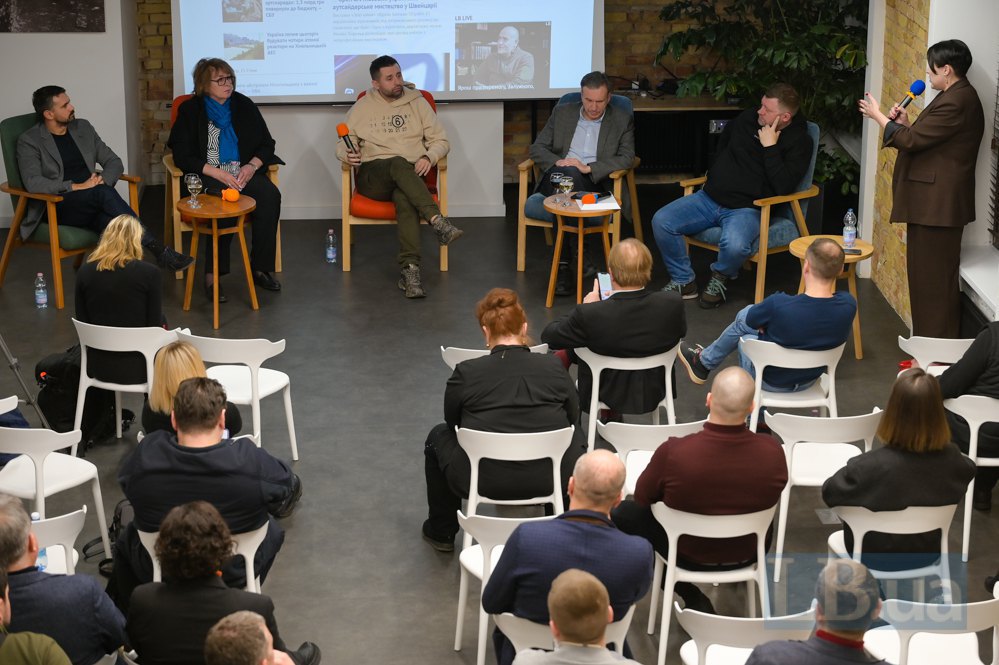
According to Davyd Arakhamiya, mobilisation is something that cannot be avoided. Especially because Russia is planning to deploy an additional 200,000 trained soldiers to Bryansk Region in March.
"It is impossible not to hold mobilisation, we all understand this. In this case, we will return to a year and a half ago, when Russian troops were near Kyiv. Then we will all be ready to mobilise again, but it may be too late," he said..
He noted that the closer the prospect of mobilisation is to every Ukrainian, the more irrationally it is perceived.
"We have seen off-the-record sociological surveys by Rating. People want to find who to blame and make up a lot of things. For example, when asked whether the draw (random mobilisation of those born on a certain date - ed.note) is fair, 98% say it is definitely unfair, because the draw brings you closer to the military. And there are a lot of questions like this that suggest that people are no longer thinking rationally, because mobilisation calls at everyone's home. Everyone has men: husband, brother, uncle, someone else. And everyone tries this scenario on.
And let's remember the first wave of mobilisation, when there were troops near Kyiv - I don't know a single man who wasn't ready to take up a rifle to defend his family. But when a person goes to a place where it takes 10 hours to get by car, the attitude of Kyiv residents, for example, is a little different. And we understand this. We communicate with the brigades, we have focus groups with the military. And things are not as good there as they were a year ago, unfortunately. We all understand this. This is the biggest challenge in the country right now," said Arakhamiya. The mobilisation should be carried out according to an inertial scenario, he argued, to avoid people being grabbed in the streets in case of a Russian offensive.

According to him, the mobilisation scheme today is as follows:
- The first wave is no problem;
- The second wave is no problem;
- The third wave - 20% of problems;
- The fourth wave - 40% of problems;
- The fifth and sixth are almost forced.
The representative of the pro-government faction in parliament is convinced that this is due to a distorted view of military service, which the Ministry of Defence must correct.
"Many people really perceive it as follows: today you receive a call-up paper, tomorrow you are checked by the military medical commission, the next day you are in a boot camp, where no one teaches you, you are allowed to make one shot, and the next day you die at the front. There were such cases when everything happened in a chaotic manner. And that's why people say they don't want to join such an army. We are now working with the Ministry of Defence to ensure a normal campaign," Arakhamiya said.
As part of this campaign, civil servants and MPs should undergo military training in boot camps, he said.
"I am an ideologue for all of us (MPs - ed. note) to go to a boot camp for training. Each in a different group, with ordinary people - to eat with them, to communicate. So that everyone can see that it's not so scary.
Moreover, I don't envy the commander of the boot camp, where there will be many MPs and where they will be poorly trained. There will be personnel changes there until some level of training is established. I believe that this needs to be done. By the way, this also applies to ministers, deputy ministers, and heads of departments. At least part-time, but they should be trained," Arakhamiya said.

Another step is to change the approach to recruitment.
"It should be nothing like the current one in the Armed Forces of Ukraine, where people are divided into paratroopers, marines, etc. And each type of troops should be given the right to recruit independently. Just like in America. For example, the infantry promotes its own ideology. Then they compete, conditionally, for the same mobilisation resource.
Now we have a prototype, which is the Third Assault Brigade. It has its own recruitment business process: there are forms to fill out and criteria listed on work.ua. And the state should, in principle, achieve at least something similar, because they have one of the best levels. But they also have a problem with mobilisation, because everything rests on people's desire. The state will not do better," Arakhamiya believes.
To increase trust in the country's leadership and in the service, it is also worth declassifying the data on our losses, he argued.
"I advised the president on this off the record, but he hasn't decided yet. But when I ask people in the street about the losses, I have never heard anything lower than 100,000. Our losses are much lower. And this is good news. It also gives people hope that when you join the army, you won't die tomorrow. The losses are not as high as they are portrayed, as we imagine. I think this is good news for people who are going to join the army," the MP explained.
In addition, he added, smart mobilisation allows one to take into account all the skills, education, and what a person does.
"Currently, there is a military occupational specialty. Let's say, I am an infantryman, that's all. The military enlistment office doesn't know anything else about me. But if they know what kind of education you have, what you did, maybe you are a good analyst or a UAV pilot, maybe you can be a gunner... People also want to see that the state will take care of them properly, and not just as it is customary in the military commissariat now, unfortunately," the head of the pro-presidential faction added.

He also spoke about digitalisation and the notional certificate of a defender.
"There will be a lot of fuss, I warn you. Remember the Covid certificates? Every person of mobilisation age has to obtain a defender's certificate, which would say: Arakhamiya Davyd Heorhiyovych, 44 years old, infantryman, private, reserved (because I am an MP). There is a QR code to scan and that's it.
This is done so that we understand what kind of mobilisation resource we have in general, how to plan mobilisation waves for the future and carry out the so-called smart mobilisation. Currently, more than a million and a half people are below the radar, and the state knows nothing about them: where they are, what they are," Arakhamiya said.







